Childhood friends, nosy neighborhood ajummas and ajussis, food (and lots of it), goat bleating (for real), and love are all a part of the popular “Reply” series:
° Reply 1997 (응답하라 1997) ☆☆☆
° Reply 1994 (응답하라 1994) ☆☆½
° Reply 1988 (응답하라 1988) ☆☆☆½
“Reply 1997” was the first release of the three. “1994” and “1988” are not continuations or prequels. Rather, each is a stand-alone series with different leads and plots. The only continuity is that the same actors portray the female leads’ parents in each of the three K-dramas. As such, you can watch any of these shows out of sequence — though, that said — you’ll enjoy the cameo appearances more if you watch them in the order they were released.
FWIW: The “Reply” trilogy aired on some streaming sites as the “Answer Me” series.
As always, my reviews are based on a ☆☆☆☆ scale. And there are some mild spoilers in the reviews. (Strong spoilers are shared with a Spoiler Alert warning.) Let me know if you’ve watched any of these K-dramas and, if so, which was your favorite!
Yes, You’re Hearing Goats!
REPLY 1997 (응답하라 1997) ☆☆☆☆
Sung Shi Won (played by Jung Eun-Ji)
Yoon Yoon Jae (played by Seo In-Guk)
Yoon Tae Woong (played by Song Jong-Ho)
Everything that “How I Met Your Mother” did wrong (including its series finale), “Reply 1997” does right. Funny and poignant with superb acting by the entire cast, the series tells the story of six childhood friends whose lives are intertwined through adulthood.
There is a lot going on in this 16-part series, which originally aired in Korea in 2012. And almost all of it is perfection.
It starts out with a high school class reunion. We are told that one couple will become engaged that day. But what we don’t find out until later is that another couple had gotten married and were expecting a baby.
Most of the series takes place in 1997 — but flashes forward through 2012 — just as the K-Pop machine was gearing up.
At the center is Shi Won — who is obsessed with a K-pop band called H.O.T. — and Yoon Jae, the smartest student at their school. Their friendship grew even stronger, when — at the age of 11 — his parents died. (Their parents had also been childhood friends.)
Yoon Jae’s older brother, Tae Woong, gives up his dreams and sticks close to home to take care of him. Both brothers are handsome, ridiculously smart and driven. Though they have their own house, they are welcomed at the Sung home for meals, family gatherings and game nights. They are, in essence, a blended family.
When Tae Woong tells his little brother that he is going to ask Shi Won out, Yoon Jae is heartbroken, but says nothing. How can he hurt his brother, who sacrificed his own goals to stay behind and take care of him?
As I started to write about the relationships that keep the characters intertwined, I realized that dissecting them didn’t do them justice. Just as in real life, the romances here are messy and maddening, but also filled with love and devotion.
There is the camaraderie of family and friends. And there are the ramifications of self-sacrifice.
There is also unrequited love that is beautifully poignant. Kudos to K-pop idol Hoya (of the group Infinite) for his thoughtful (and unstereotyped) portrayal of Joon Hee, a gay teenager who is in love with his best friend; and to the writers for not portraying it as “weird.”
All the over-the-top histrionics aside (especially early on with Shi Won’s tantrums over life in general and H.O.T. in particular), this series at its core is about unconditional love. One of the sweetest moments is watching Yoon Jae drive an old beater that’s doors don’t work properly. (I believe it had belonged to his parents.) We learn that when he had his first job, he bought her parents — who had become his surrogate parents — a new car.
I really enjoyed learning more about their past as the series progressed. For instance, about mid-way through the series, we see that Yoon Jae is in the hospital with a broken arm. We don’t learn until the final moments how that happened.
I also found it amusing that each time a D’oh moment happened, the bleating of a goat could be heard. Maaaaaaaa.
Spoiler alert: The couple that gets engaged at the reunion are Hak Chan and Yoo Jung, who was in love with Yoon Jae in high school.
We also learn that Shi Won and Yoon Jae have already been married for a few years. She is pregnant with their second child. Their first child was an unexpected surprise. Yoon Jae’s brother — who already had his own wedding planned — gave them his wedding date so that they could be married prior to the child’s birth.
Tae Woong falls in love with the doctor who performed surgery on him. It turns out that like Shi Won, she is a huge idol fangirl. There’s a nice flashback to the first time they met — though neither remembers it. He was in line getting music for Shi Won. His future bride rudely brushes past him, having picked up her latest CDs.
Yoon Jae is deathly afraid of frogs. While still in high school, the six friends take a photo together at the park. At the last minute, Shi Won opens her hand to reveal a tiny frog and Yoon Jae freaks out, falls backwards and breaks his arm. This is how the series ends, and it’s kind of perfect.
You may recognize: Jung Eun-Ji, who portrays Shi Won. She’s a member of the idol group, APink.
Shi Won’s very loud father is played by Sung Dong-Il, who had a much more muted role as the prodigal professor son in “Miss Granny.”
Eun Ji-Won, a member of the group Sechs Kies, plays the porn-obsessed Hak Chan. Sechs Kies is H.O.T.’s rival. There are some clever meta moments: Hak Chan’s girlfriend is obsessed with Sechs Kies. Watching a video of the group, Hak Chan mumbles that he’s more talented than they are. At the reunion, his fiance, Yoo Jung (played with Shin So-Yool) says she’s now obsessed with Infinite. Hoya is a member of that K-Pop band.
Lee Yong-Nyeo, who played Madam Goh — matchmaker to the dead — in “The Master’s Sun” plays a cancer patient here.
My favorite scene:
Though the series is filled with heartbreaking and romantic moments, my favorite was when the friends all gathered together at the Sung house to watch Korea play against Japan in a pivotal soccer match. Mr. Sung, who is the coach for the Busan Seagulls, tells motormouth Sung Jae (portrayed by Lee Shi-Un) that if he can keep quiet for the entire game, he will give him one of the star player’s bats. You can see the frustration on his face as he listens to everyone getting mixed up about facts and pop culture. Finally, he doesn’t care about the prized bat and he explodes with a barrage of corrections.
He reminded me so much of Lee Jae-Won, who played a similar character in “The Master’s Sun.” Their mannerisms, laugh and (to a lesser extent) looks were so similar that I had to keep checking IMDB to make sure they indeed were two different actors.
Extras: Seo In-Guk parodies the popularity of his character on an episode of “Saturday Night Live Korea.” If you’ve got three minutes, watch it. It’s hysterical … and spot on!
Airdates: TVN’s 16-episode series aired from July 24 to September 18, 2012.
Trash or Chil Bong?
REPLY 1994 (응답하라 1994) ☆☆½
Na Jung (played by Go Ara)
Chil Bong (played by Yoo Yeon-Seok)
Trash (played by Jung Woo)
The premise for “Reply 1994” is pretty much the same as its superior predecessor, “Reply 1997.” Here, a group of college students room together at a boarding house run by the female lead’s parents. She will marry one of the men…but which one?
The writers give it a good shot at trying to disguise who will become Na Jung’s husband, but there really are only two choices. Why? Because in all the wedding flash forwards, we see that her husband is really tall. The only two who physically fit that requirement are med student Trash (on the left) and baseball prodigy Chil Bong (on the right).
Though I was rooting for one over the other, my choice was incorrect. I knew this prior to the reveal in the final episode, because I screenshot one of the wedding photos where the husband’s face was blurred out and I could still tell by the haircut and facial structure who she picked.
Does that make me sound creepy, clever or just really determined? Discuss.
Though we’re supposed to care about Na Jung’s love life, the most interesting aspect of this 21-episode Korean drama was the lifelong friendship that these seven college roommates shared.
I didn’t understand why the male characters were so besotted with Na Jung. Though actress Go Ara gained almost 20 pounds and cut her hair to try to appear less attractive, she was still ridiculously beautiful. Less attractive was her gross eating habits, slovenly manners and freakily immature obsession with a college basketball star.
I was more vested in the relationship between Samcheonpo (Kim Sung-Kyun) and Yoon Jin (Min Dohee). Though he was the youngest character and the most socially awkward, he also was the most honest. He said what was on his mind, even when it would tick off his girlfriend. When Yoon Jin was expecting an engagement ring, she was disappointed (at first) to see that he gave her three bank books instead. One was for savings, the other was for a house and the third was for their wedding. He knew that wasn’t romantic, he said, but it was who he was.
This series — which aired in Korea in 2013 — dragged on for me. Truth be told, I was tempted to stop watching after a handful of episodes, but I wanted to get the back story in case any of the players showed up in “Reply 1988” (the final series in the trilogy).
There were some wonderful moments in the series though. Early on, Na Jung explains how Trash became her de facto big brother after her actual big brother (who was also Trash’s best friend) died during his childhood from a brain tumor. Na Jung and Trash were both wary of transitioning from a sibling-like relationship to a couple for obvious reasons.
I enjoyed the non-linear story telling and liked seeing that each of the characters ended up fine as adults.
Meta moments: Sung Dong-Il and Lee Il-Hwa return as the female lead’s parents. (Fans will recognize that the characters they play share their real-life names.) This time, they’re Na Jung’s parents. Instead of coaching the Busan Seagulls (as he did in “Reply 1997”), Sung is the coach of the Seoul Twins. Lee continues to serve ridiculously large amounts of food at every. single. meal. and it all looks delicious!
It turns out that Na Jung and her husband (whose identity I will reveal in the spoilers below) live one floor beneath the couple from “Reply 1997.” Stop reading if you don’t want to know who they are… for real…’cause I’m going to tell you who they are…NOW: Yoon Jae and Shi Won. Shi Won’s dad and Na Jung’s father — both played by the aforementioned Sung Dong-Il — get to share split-screen time.
The cast members of “Reply 1997” make cameo appearances in Episodes 16 and 17. It was refreshing to see them, but I really hated the interaction between Shi Won (who was obsessed with the K-Pop band H.O.T.) and Trash. I actually found it disturbing.
The 1997 kids board a bus that Trash is already riding. When a song she likes comes on the radio, Shi Won asks the driver to turn the music up. Trash asks him to turn it down. The disagreement turns into a full-out brawl, with Trash calling her ugly and hitting her. This was written as a funny moment, but …
No.
In what universe is it OK for a 24-year-old man to verbally abuse and hit a 17-year-old girl? This is also out of character for Trash, who was written to be a funny, caring man.
Spoiler alert: Na Jung marries Trash. Binggeure (played by B1A4 member Baro), who was silently questioning his sexuality, marries a female doctor. Chil Bong also got married — though we never see his wife.
Chil Bong should’ve moved on years ago. Na Jung had already pronounced her love for Trash and Chil Bong still didn’t get the hint. In fact, he went to Trash and told him that it wasn’t over.
Dude. Yes it was. It was over before it ever began. She had already made her choice.
For the record, I thought Na Jung picked the wrong man. Rumor has it that the writers had her all set to marry Chil Bong, but viewer response was so strong in favor of Trash that they changed the storyline about halfway through to make Trash more likeable.
Airdates: TVN’s 21-episode sequel to “Reply 1997″ aired from October 18 to December 28, 2013.
The Best in the “Reply” Trilogy
REPLY 1988 (응답하라 1988) ☆☆☆½
Deok Sun (played by Lee Hye-Ri)
Jung Hwan (played by Ryu Joon-Yul)
Sun Woo (played by Go Kyung-Pyo)
Taek (played by Park Bo-Gum)
One of the things that I really enjoy about the “Reply” trilogy is the lifelong friendships that the characters share. Whereas the first two series focused primarily on the teenagers, “Reply 1988” delves into the backstories of their parents as well.
And that, to me, made this series a standout. The parents’ storylines were as interesting — if not more — than the who-will-she-marry premise that is predominant in each of the “Reply” installments.
Like its predecessors, “Reply 1988” has us wondering which man the female lead will choose. We know that cute and friendly Deok Sun will marry one of her best friends. Will it be stony-faced Jung Hwan, who has a difficult time showing his emotions, or sweet and gentle Taek, who is an internationally-ranked baduk champion?
Unlike the previous two series where the actors played both the younger and older versions of themselves, the older versions here are portrayed by actors in their 40s. It’s a nice little twist.
To be honest, I was underwhelmed by the first episode and wasn’t sure I wanted to invest any more time watching all 20 episodes (which ranged from 90 minutes to almost two hours each). I’m glad I did, though, because by the second episode, I was hooked. Originally aired on the Korean cable network tvN, “Reply 1988” had the highest cable rating for many years.
The characters were written as more than just teenage caricatures. I also I recognized the suffering that the parents went through from my own memories of my parents’ lives.
Girl’s Day vocalist Lee Hye-Ri is adorable as Deok Sun. Though her acting skills here aren’t comparable yet to some of the veterans (for instance, when she cries, it sounds more like a forced, irritating wail), she does a fine job of portraying a tomboy who’s anxious to find her first love.
The series shows the importance of education and how hard it is for students to get accepted into college. But there was also the underlying message that college isn’t for everyone, and that those who don’t make it into one of the SKY schools still have a chance to lead successful lives. (SKY is the acronym for the top three Korean universities: Seoul National University, Korea University, Yonsei University.)
Given the enormous pressure that South Korean students are under today to succeed at all costs, it was heartening to see that the academic underachievers in this series all ended up doing well for themselves.
The storyline moves quickly from Episode 17, where the cast members flash forward from teenagers to their mid-20s. In episode 18, a fan favorite from “Reply 1994” makes a cameo.
As in the previous two installments, Sung Dong-il (above, left) and Lee Il-hwa return as the female lead’s parents. (Fans will recognize that the characters they play in the “Reply” trilogy all share the actors’ real-life names.) Both actors are wonderful in their roles, but some fans have expressed irritation at Sung’s portrayal, which often has him bellowing at his children. (To see him play a quieter version of a dad, watch his understated performance in “Miss Granny.”)
Beneath his gruff exterior, Dong-il has a good heart. Though his own family is struggling to make ends meet, he is incapable of saying no to anyone who needs money. He would come home with useless gadgets that he purchased from the less fortunate. Even though his wife chided him for it, reminding him that the money he spent on others was literally taking things away from their own children, he wanted to help others as much as he could.
From the tight-curled pahmas (that’s perms, to you) on the ajummas, the need to share food with friends and the constant worrying about money, this series captures a segment of Korean culture that is so familiar — even to those of us who grew up overseas.
Jung Hwan’s parents grew up in poverty. His family lived in a small, one-bedroom rental property until his older brother bought a winning lottery ticket. But even though they were now wealthy, his dad can’t bring himself to buy anything nice for himself. When his wife forces him to buy a new car, he proudly comes home with a new used car instead.
When you grow up so poor that you can’t imagine where your next meal will come from, buying a designer coat is off limits. I remember my own parents never spending any money on themselves, even after they had saved a comfortable nest egg. The only luxuries they enjoyed were the ones we bought for them.
The series also touched on something that seems insane to me: forced retirement by the workers’ late 40s — a time when many parents haven’t finished sending their children to college. Duk Seon’s father, who only had a high school education, toiled away at the bank long after everyone else went home. He knew that without a college degree, he had more to prove to his employers. Still, he was forced to retire before his 50th birthday.
The same for another boy’s mother, who was a high-powered business executive. Later, we see her taking a job as a grocery store cashier. While some would say that it isn’t realistic for her to take a low-paying job, this is commonplace.
I remember that during a recent trip to Korea, one of our very-cultured, very well-educated drivers had once been an executive at an airline. When he was pushed out of the workforce, he reinvented himself as a livery driver. Because he could speak several languages, he drove visiting foreigners around.
Timeline: Though each series stands on its own, I would recommend that — if you have the time — you watch this trilogy in the order they were released: “Reply1997” (released in 2012); “Reply 1994” (released in 2013) and then “Reply 1988” (which aired from Nov. 6, 2015 through Jan. 6, 2016). You’ll appreciate the meta moments and won’t be spoiled as to who gets married in the earlier productions.
Meta moments: Kim Sung Kyun, who played awkward country boy Samcheonpo in “Reply Me 1994,” returns to this series as Jong Hwan’s father. Jung Woo also returns for a few minutes of screen time, reprising his role of Trash.
The boys talk about how pretty actress Lee Mi-Yeon is. Lee is the actress who plays Deok Sun in her 40s.
Real-life relationships: As of this writing, Lee Dong Hwi (in the yellow shirt above) has been in a long-term relationship with model and “Squid Game” actress Jung HoYeon. They’ve been dating since 2015.
Lee Hye-ri and her co-star Ryu Joon-yul (second from the right) began dating in 2017 after their series ended in 2016. They broke up in November 2023, which some fans pointed out is around the same time that actress Han So-hee (“My Name,” “Gyeongseong Creature”) was seen at Ryu’s photo exhibit. After the latter two were spotted vacationing in Hawaii last month, they acknowledged that they were dating — and rumors spread almost instantly that Han is the reason why Lee and Ryu broke up. There were some messy online interactions between the two women, who faced online hatred from fans of all three. The newer couple subsequently broke up at the end of March.
Spoiler alert:
Though the premise is strong for Deok Sun to choose Jung Hwan, she ends up married to Taek. Early in the first episode, there was a clue that they would be together. She sees him outside drinking milk and teasingly tells him to grow strong and then marry her when they’re adults.
We never get to see Deok Sun’s wedding to Taek. We do get to watch the emotional ceremony between Bora and Sun Woo (Deok Sun’s older sister and her childhood friend, respectively).
Deok Sun becomes a flight attendant, which is still a coveted job in South Korea today among college graduates. Jung Bong (who took more than seven years to get accepted by a college) becomes a celebrity chef. Like Deok Sung, Dong Ryong — the boy above in the middle — was a failure at school. I wondered what would become of him, and was happy to see he became a successful restaurateur.
Airdates: TVN’s 20-episode series aired from November 6, 2015 through January 6, 2016.
© 2024 JAE-HA KIM | All Rights Reserved





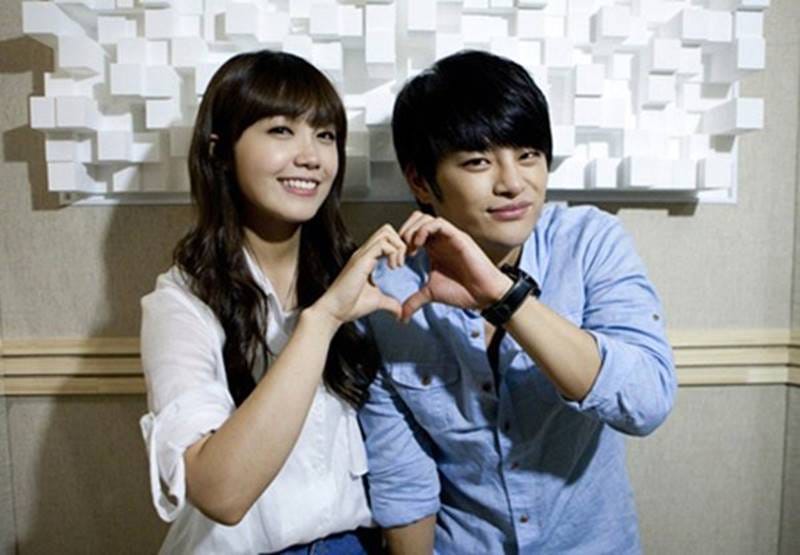
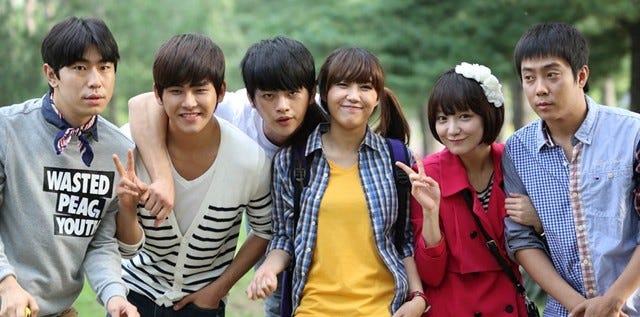
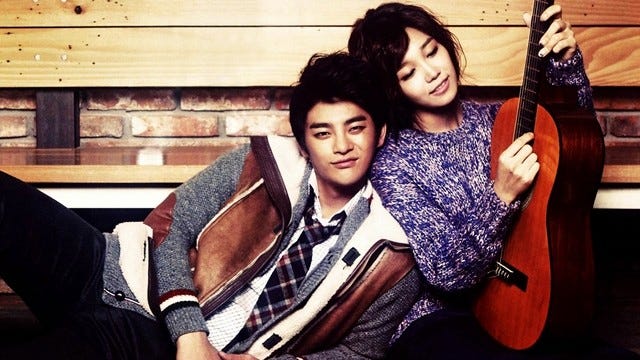
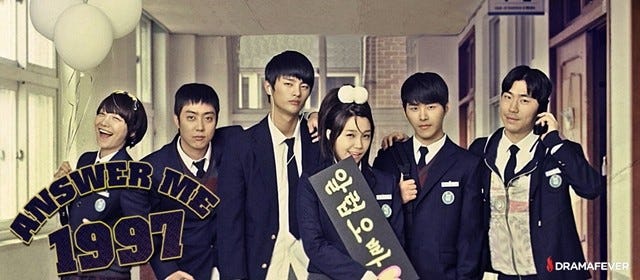
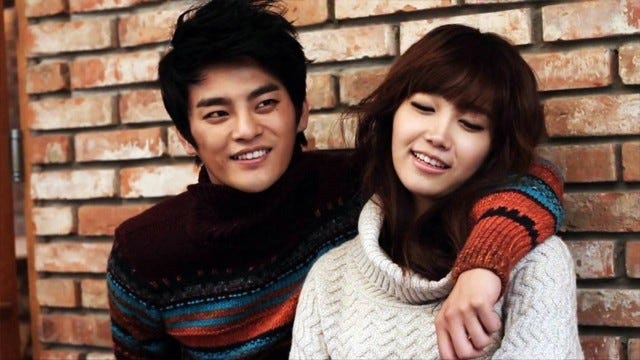
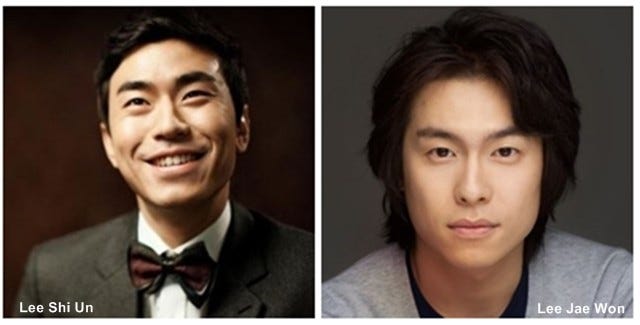
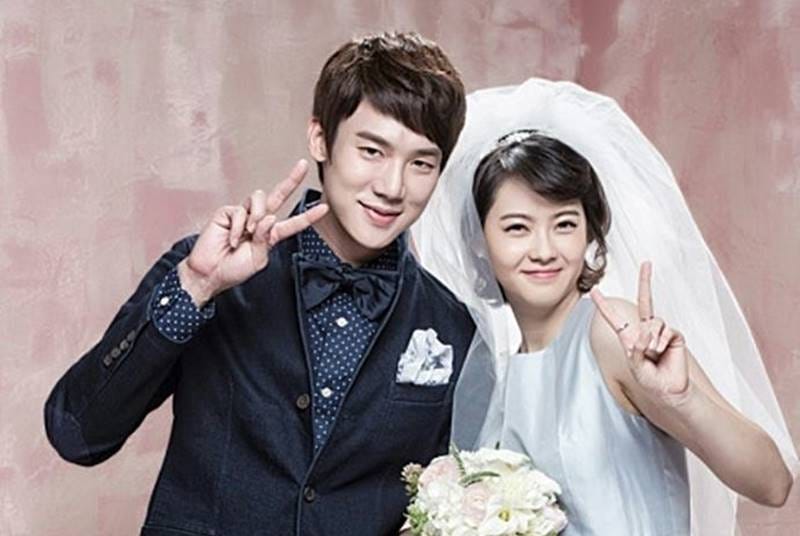
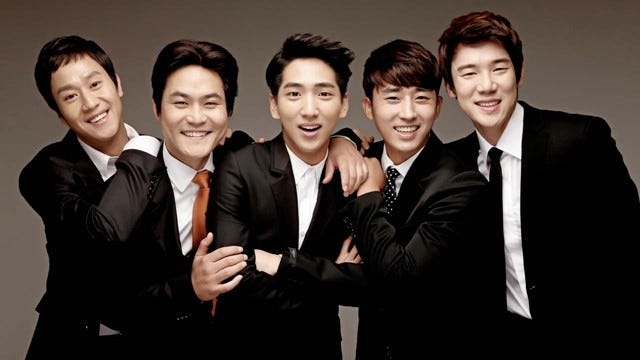
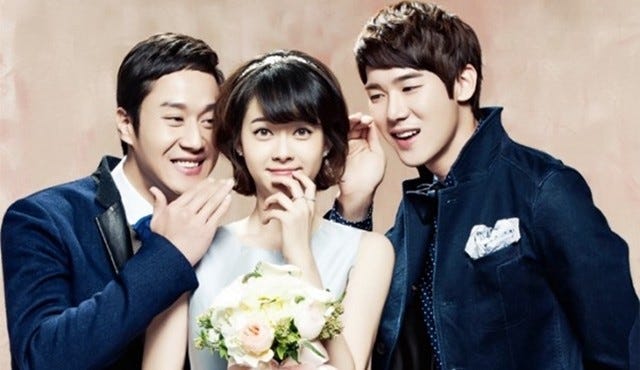
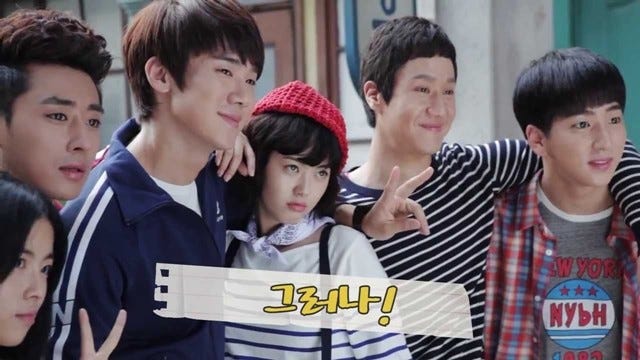
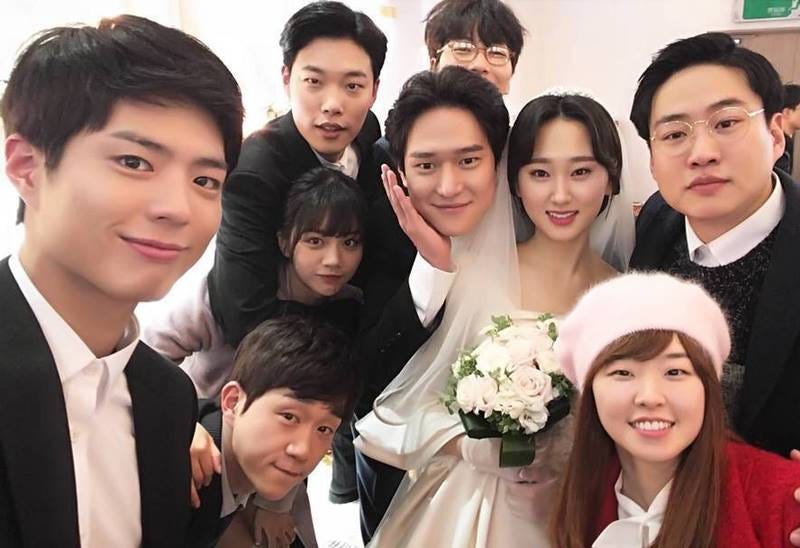
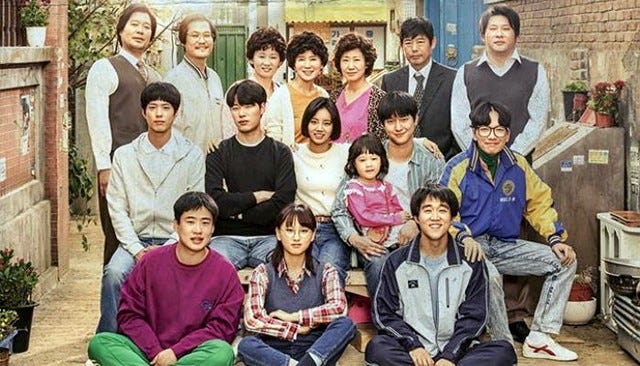
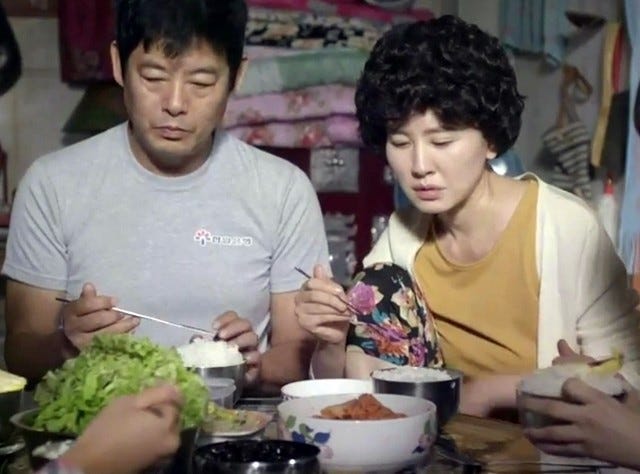
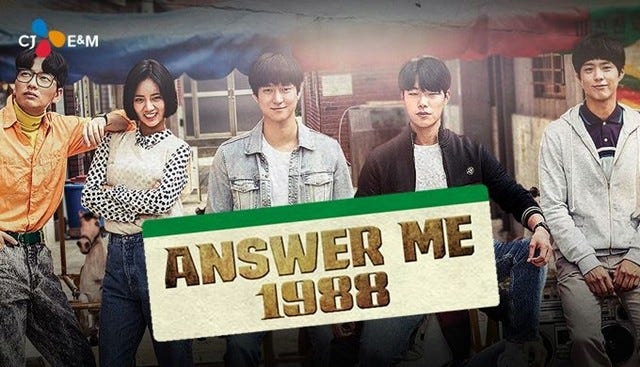
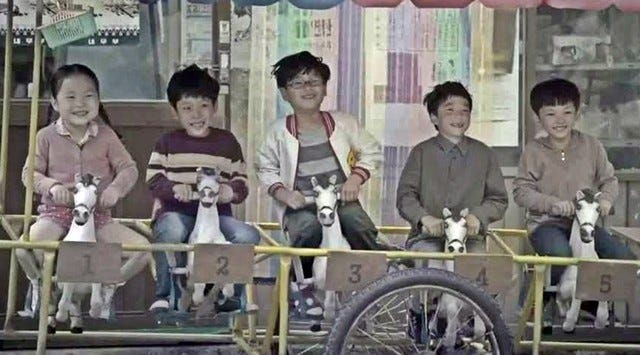
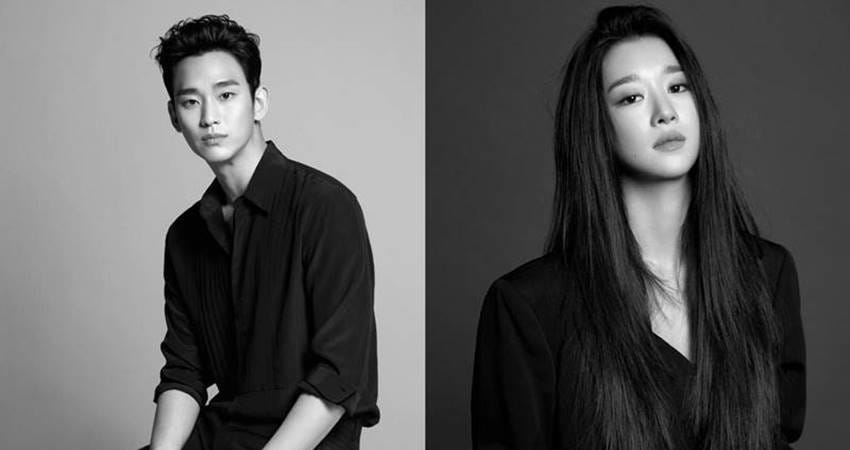
i’ve only watched Reply 1988 so not reading all this yet due to the spoilers but i’m excited to learn that Reply 1997 was actually the first one of them!! i know what one i’ll start next now!!
Reply 1988 is one of my most favourite series ever. I know a lot of people who found the pace a little slow and the series a little boring, but I think it embodies what a slice-of-life drama should be.
I do have a question—is there an order to watching this? Should you watch it by year or does it even matter? (I haven't seen 1997 or 1994, so I'm wondering.)